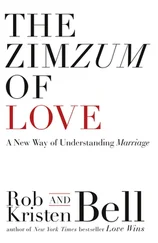I had specific convictions concerning God and sin and eternity, but I also understood that my concepts, however well I might articulate them, were flawed, broken and always in need of rehabilitation. When I heard Leonard Cohen proclaim in his song “Anthem” that there are cracks in absolutely everything, I sensed he was describing my life. The cracks, Cohen croons, as if we should all know it by now, are how the light shines in, and it is only by remaining aware of our imperfections that we remain open to redemption and reform. When we have questions, illumination is possible. Otherwise we’re closed and no light can enter.
My inner Nobodaddy remained. Something clicked when a woman in Northern Ireland told me her own Uncle Ben story. She said she’d heard it from the Jesuit priest Gerard Hughes. [2]Until I heard her story, I didn’t have a good way of talking about this binding, bad concept of God. I might even say that I didn’t know this death-dealing negative image was there. I didn’t know what had hold of me. The story, as stories will, prompted a lot of questions concerning the presumed goodness of God, the idea that God is love, and what it might mean to affirm, as I do, that God conquers rather than sponsors death.
The light began to shine through the cracks. Stories, I find, help the light to shine.
Sacred Questioning
There was a time in my life when I viewed the Uncle Ben story, despite its nightmarish quality, as an accurate depiction of the way things work. Protesting it would have seemed cosmically useless, given that this God doesn’t suffer questions, doubts, or complaints. But I eventually came to suspect that any god who is nervous, defensive, or angry in the face of questions is a false god. I began to realize that I often ascribed to God the traits of people who are ill at ease, anxious, and occasionally hateful and who even presume from time to time to speak on God’s behalf. I began to wonder if the Bible backs up the contemptuousness they carry around.
Over time, the Bible ceased to be a catalog of all the things one has to believe (or pretend to believe) in order to not go to hell. Instead, the Bible became a broad, multifaceted collection of people crying out to God—a collection of close encounters with the God who is present, somehow, in those very cries. Far from being an anthology of greeting-card material, those accounts of joy, anger, lamentation, and hope are all bound upon the most formidable array of social criticism ever assembled in one volume.
And Christianity, far from being a tradition in which doubts and questions are suppressed in favor of uncritical, blind faith, began to assume the form of a robust culture in which anything can be asked and everything can be said. The call to worship is a call to complete candor and radical questioning—questioning the way things are, the way we are, and the way things ought to be. As G. K. Chesterton observed, the New Testament portrays a God who, by being wholly present in the dying cry of Jesus of Nazareth, even doubted and questioned himself. The summons to sacred questioning—like the call to honesty, like the call to prayer—is a call to be true and to let the chips fall where they may. This call to worship is deeper than the call to sign off on a checklist of particular tenets or beliefs. It is also more difficult.
Reading The Temptation of Religious Success by Oswald Chambers
It is good to be reminded we are not the first to be tempted by snags and dead ends in the Christian life. The church has had two millennia of practice. Here writer and preacher Oswald Chambers (1874–1917) provides a meditation on how we are tempted as Christians to measure ourselves by “successful service” or tempted to conform ourselves to “the pattern and print of the religious age we live in.” Taken from his classic work My Utmost for His Highest, his caution is timely as we think through what the real message of Jesus is and what constitutes ill-fitting tradition. His advice is also wise as well as relevant: focus solely to be approved by God, and work (and debate) with kindness and gentleness, without coercion. Amen.
Notwithstanding in this rejoice not, that the spirits are subject unto you. (Luke 10:20)
As Christian workers, worldliness is not our snare, sin is not our snare, but spiritual wantoning is, viz.: taking the pattern and print of the religious age we live in, making eyes at spiritual success. Never court anything other than the approval of God, go “without the camp, bearing His reproach.” Jesus told the disciples not to rejoice in successful service, and yet this seems to be the one thing in which most of us do rejoice. We have the commercial view—so many souls saved and sanctified, thank God, now it is all right. Our work begins where God’s grace has laid the foundation; we are not to save souls, but to disciple them. Salvation and sanctification are the work of God’s sovereign grace; our work as His disciples is to disciple lives until they are wholly yielded to God. One life wholly devoted to God is of more value to God than one hundred lives simply awakened by His Spirit. As workers for God we must reproduce our own kind spiritually, and that will be God’s witness to us as workers. God brings us to a standard of life by His grace, and we are responsible for reproducing that standard in others.
Unless the worker lives a life hidden with Christ in God, he is apt to become an irritating dictator instead of an indwelling disciple. Many of us are dictators, we dictate to people and to meetings. Jesus never dictates to us in that way. Whenever Our Lord talked about discipleship, He always prefaced it with an “IF,” never with an emphatic assertion—“You must.” Discipleship carries an option with it.
[ 1] Find the interview online at http://www.youtube.com/watch?v=TNCnxA91fHE.
[ 2] Gerard Hughes speaks of “an identikit picture of God,” which formed in his mind during his conversations with university students in his years as a chaplain. It became the story of “good old Uncle George.” “Good old Uncle George” can be found in the first chapter of Hughes’s book Oh God, Why? A Spiritual Journey Towards Meaning, Wisdom, and Strength (Abingdon, Oxfordshire, UK: Bible Reading Fellowship, 2000), http://www.gerardwhughes.com/oh_god_why_chapter1.htm (accessed August 21, 2008).
Chapter Two Here Is the New There
Overview by Rob Bell
What’s fascinating to me is how many people, when you say the word heaven, immediately think, “Oh, that’s the place that either does or doesn’t exist, based on your story and your beliefs and your perspectives; it’s the place that either does or doesn’t exist when you die that is out there, over there, somewhere else.” What I find terribly compelling is that when Jesus talked about heaven, he mostly talked about a dimension, a way of living, the accessibility of the life of God, right here, right now, in this world. For Jesus, heaven was far less about a speculation on what it will be like then and there and far more about a confidence that you, right now, can step into. Jesus called this “eternal life,” which was a very rabbinical concept that meant living in conscious contact and communion with God right here, right now. Is that actually possible? Was Jesus being truthful here? Can you actually step into a whole new kind of life right here, right now? Because if that’s true, that raises all sorts of questions.
Going Deeper by David Vanderveen
Citing the Lord’s Prayer, Rob connects “Your will be done on earth as it is in heaven” with the repeating promises in the Old and New Testaments that God is seeking partners to help move creation, so that it becomes a place where nothing competes with God’s will to eradicate injustice from the earth, where all creation is restored.
Читать дальше












